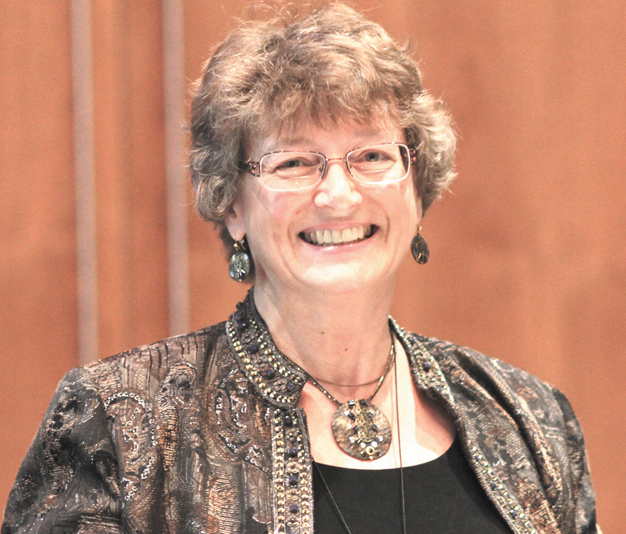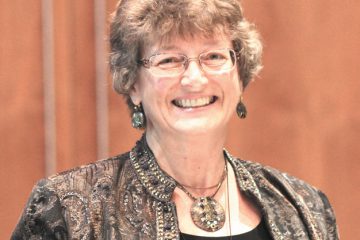Being truth

The Power of Stories Series
Jewish Family Education With Candace R. Kwiatek, The Dayton Jewish Observer
“My father was a wandering Aramean. He went down into Egypt where he became a great nation. But the Egyptians dealt harshly with us and oppressed us. And we cried out to the Lord, Who freed us from Egypt by a mighty hand and by signs and wonders.”
These verses from Deuteronomy are familiar because they are central to the Jewish story we recount each year at Passover.
But more than just an exercise in remembering, “storytelling is the great vehicle of moral education,” writes Rabbi Jonathan Sacks. “It tells us who we are and who our ancestors hoped we would be.”
Modern philosopher Alasdair MacIntyre amplifies its significance by highlighting the personal impact of storytelling: “I can only answer the question ‘What am I to do?’ if I can answer the prior question ‘Of what story or stories do I find myself a part?’”
It turns out truth is at the heart of the best Jewish stories and storytelling.
“The value of truth permeates the fabric of Judaism,” writes Israeli scientist and scholar Rabbi Ari Zivotofsky.
Revealed at Sinai, emet (truth) is one of the 13 Divine attributes ascribed to God.
While that concept is nearly incomprehensible, we can grasp the talmudic sages’ version: “The signature of God is truth.”
In the earthly realm, Torah is truth, according to the psalmist, its transcendent messages woven into the stories that shape our perspective on the world.
Linked to both God and Torah, truth should speak with authority, with certainty, and without ambiguity, Rabbi Tzvi Freeman speculates.
Yet, truth’s identity is weakly defined by negative commandments: you shall not bear false witness, you shall not deal deceitfully or falsely, keep far from falsehood.
Furthermore, truth rarely stands alone, but is paired with other ethical imperatives: lovingkindness, peace, justice.
And the nearly endless quest for truth in rabbinic literature is framed as a series of debates that argue opposing views, which a Divine Voice just may proclaim to be equally true.
It seems we have to rethink the idea of truth, Freeman concludes. “Maybe truth isn’t a fact at all. Maybe truth is more like a process.”
Truth is a complex, messy process of comprehending different viewpoints, evaluating and prioritizing between competing ideas and values, and identifying solutions for a particular situation.
As Rabbi Schneur Zalman of Liadi describes it, truth is being immersed in the experience of “thinking with God’s mind.”
“That state of being, that experience, that process, that itself is truth.”
How do the following tales illustrate the notion of being truth?
The Petitioners. Laying out yet another fresh change of clothes, the new assistant to Reb Shmuel of Lubavitch was puzzled.
“I wonder why the rebbe is always dripping with perspiration when he comes out of these private meetings,” he thought to himself. “What can he possibly be doing in that room, crowded with a desk, a dozen bookshelves, and endless visitors?”
Just then, the rebbe came out of his study, once again covered with sweat.
“You’re probably wondering about my appearance,” he remarked tiredly to his attendant. “Over the past hour I have received 25 petitioners. If I am to understand each person’s situation, I must remove my clothes and dress in his. If I am to give him good advice, I must remove his clothes and change back into mine, for while in his clothes, I can see only what he sees, and if he saw a way out of his dilemma, he would not have come to me in the first place. So for the past hour I have undressed and dressed myself 50 times. It is very hard work!”
The Lecture. Rabbi Yisrael Salanter gave a regular talmudic discourse. One day, a student asked a very sharp question that seemed to undermine the entire argument Salanter was making.
As he paused for a moment, at least five acceptable answers came to the rabbi’s mind to refute the question. Even though he could see that they were not ultimately true, he knew it was unlikely that anyone in the audience would see through them as he could. He was tempted.
He didn’t want the Torah to lose honor from his failure nor did he himself want to lose face in the classroom.
Then he said to himself, “Admit the truth.” And he stepped down.
The Book. Heading home from school for the first night of Chanukah, Arnold and Beryl stopped by the pretzel lady who, holding a paper-covered basket, wore a heavy sweater against the falling snow. As the brothers walked away, they wondered if she’d made enough money to buy candles for her menorah. While Beryl ran home for an extra box of candles, Arnold followed the woman’s footprints to a basement door in an apartment alley. The boys met up near the school and retraced the route to the apartment.
Peering into the side window, they saw their elderly friend on the floor, unresponsive.
A passerby helped break down the door and revive the woman. While she delightedly lit the candles, the man contemplated the barren apartment. Examining an old frayed book on a shelf, he mentioned he was a book dealer and asked if the woman would sell it for $200. Shocked, she eventually agreed and, soon after paying, the man hurried off. As the brothers left for home, they saw him in the distance, tossing the book into the trash.
Truth is a process of prioritizing conflicting values. Our choices determine both our own morality and the kind of society we create. Be truth.
Literature to share
The Orphan’s Daughter by Jan Cherubin. In this debut novel, Cherubin creates a strong portrait of a fractured Jewish family spanning two generations in the 20th century. The saga begins when 7-year-old Clyde is placed with his younger brother in a Jewish orphanage when their father abandons the family. Not unexpectedly, Clyde’s relationships as an adult suffer in turn, most especially his relationship with his daughter. When a family emergency intervenes, however, things begin to change. For those who love stories that revolve around flawed characters and family drama rather than action or intrigue, this is a must-read.
Dear Mr. Dickens by Nancy Churnin. Like so many others in the 19th century, the young Jewish woman Eliza Davis viewed the acclaimed English author Charles Dickens as a hero for using his writing to help others, especially the poor. But as she read Oliver Twist, with its criminal mastermind Fagin described in classic Jewish stereotypes as dishonest, selfish, and ugly, Eliza decided to speak out. A multiple award-winning picture book for primary grades, Dear Mr. Dickens is the true story about the power of one person to improve the world by speaking out for what is right.
To read the complete July 2022 Dayton Jewish Observer, click here.



